We highly recommend the Fitbit Versa for a wide variety of styles and uses, the Samsung Galaxy Fit for a robust activity tracking suite, and the Samsung Galaxy Watch Active for high-tech, stylish fitness fans.
Best Overall — Fitbit Versa
Fitbit Versa Features
- Heart rate monitor
- Altimeter
- 4-day battery life
- Sleep tracking
- Music player
- Water resistance to 50 meters
- Color screen
- Replaceable band
- Compatibility with Android, iOS, and Windows
Swapping out the Versa band isn't as easy as some other Fitbit models we've seen. You'll need fingernails to push the tiny pin down and back to get the strap-free. Even with fingernails, we struggled for a good five minutes to get it off.
Aside from the band-swapping issue, the Versa is the perfect blend of fitness tracker and smartwatch. You can check texts, calls, and notifications while eyeing the heart rate monitor as you jog down the sidewalk.
There's not much you can't do with the Fitbit Versa. You'll be able to track the basics, including steps, distance, calories, and floors climbed. Some other perks include health tracking, sleep tracking, and 24/7 heart rate monitoring. It also provides you with 15 exercise modes to choose from, like biking, running, swimming, and even yoga.
Pros:
- Compact and lightweight
- Highly customizable
- Affordable price tag
Cons:
- No onboard GPS
- Difficult to swap bands
- Less battery life than Ionic
Best Overall
Fitbit Versa
A well-rounded smartwatch
At first glance, the Versa looks like an Apple Watch. But it lacks a steep price tag and still offers a color screen, heart rate monitor, and music player.
Best Value Tracker — Fitbit Charge 3
Fitbit Charge 3 features
- Heart rate monitor
- Altimeter
- Up to 7-day battery life
- Sleep tracking
- Water resistance to 50 meters
- Grayscale screen
- Replaceable band
- Compatibility with Android, iOS, and Windows
Straight out of the box, the first thing you'll notice about the Charge 3 is the band. It comes with a watch-style buckle, which is a nice upgrade from the simpler snap clasps on other Fitbit models.
The Charge 3's touchscreen is pretty responsive; you'll need to swipe up or down to check various stats. There are also two buttons on either side of the screen you can press. It's a little awkward pressing these to access the apps and settings, but it isn't something we couldn't get over.
The band on the Charge 3 is replaceable and secures with a buckle, which is a nice upgrade from the Flex 2's snap-style band. So if your dog decides the band is the next best thing to chew on, you're not stuck sporting a fitness tracker decorated with your pup's dental impressions.
One gap in Charge 3's features is a lack of GPS. Of course, you can bring your phone along to track your trail running routes, but that's an extra thing to carry and isn't ideal. Still, the features the Charge 3 does have are impressive—a heart rate monitor, step, distance, and calorie tracking, plus Fitbit's sleep tracking technology. All that said, it does offer a more stylish design and a larger screen than the similarly priced Garmin Vivosmart 4.
Pros:
- Crisp, responsive screen
- Thin, comfortable design
- Improved notifications
Cons:
- No onboard GPS
- Finicky side buttons
- No music controls
Best Value Tracker
Fitbit Charge 3
An all-around great wearable on a budget
This tracker boasts a touchscreen and improved ergonomics without sacrificing essential features. It tracks 15 workouts, offers 7-day battery life, and more.
Best On-A-Budget Tracker — Xiaomi Mi Band 4
Xiaomi Mi Band 4 features
- Heart rate monitor
- Six workout modes
- 20-day battery life
- Color screen
- Sleep tracking
- Wearable while swimming
- Smartphone notifications
- Compatibility with Android and iOS
When you want to be able to cover your bases with your fitness tracker without breaking the bank in the process, you'll love the Xiaomi Mi Band 4. A definite improvement from the Mi Band 3, this new version sports a clear color screen that's easy to read and navigate. More importantly, it offers a satisfying list of tracking abilities and other features that are hard to find at this price point.
You'll be able to choose from up to six workout modes, which include running, treadmill running, cycling, walking, pool swimming, and a general "exercise" workout mode. The swim tracking is on point, with the ability to recognize swim styles such as freestyle, butterfly, and backstroke. It also records other data sets, like swimming pace and stroke count.
Other than that, you'll have an extensive 20-day battery life, sleep tracking, and all-day heart rate monitoring. It might not be a smartwatch, but at this price point, it's difficult to complain about this powerful little tracker.
Pros:
- Budget-friendly tracker
- 20 days of battery life
- Beautiful color display
Cons:
- No onboard GPS
- Mi Band 3 charger not compatible
- NFC only available in select regions
Best On-A-Budget Tracker
Xiaomi Mi Band 4
All the basics at a fair price
Mi Band 4 gives you connected GPS, heart rate monitoring, and activity tracking. It might lack smartwatch-related features, but the price makes up for it.
Best Health Tracking Suite — Garmin Vivosmart 4
Garmin Vivosmart 4 features
- Heart rate monitor
- Altimeter
- Up to 7-day battery life
- Pulse Ox
- All-day stress tracking
- Water resistance to 50 meters
- OLED screen
- Compatibility with Android and iOS
The Garmin Vivosmart 4 does everything you would expect it to as a fitness tracker. It keeps track of your steps, sleep, calories burned, floors climbed, various exercises, and heart rate. However, where this tracker shines is its health-tracking features.
For starters, you'll have advanced sleep tracking with REM sleep. It can also gauge blood oxygen saturation levels during the night with its wrist-based Pulse Ox sensor. The all-day stress tracking feature is complemented by a relaxation breathing timer. Lastly, the "Body Battery" monitor helps optimize your daily activities based on your energy levels.
A couple of things you'll miss include GPS and replaceable bands. You'll still have access to smartphone notifications on your wrist. If you're an Android user, you can respond with preset quick replies. If you want detailed health tracking data, the Garmin Vivosmart 4 is the way to go.
Pros:
- Ultra-lightweight design
- Premium health tracking
- Helpful Body Battery™ Energy Monitor
Cons:
- No GPS
- Slim screen can be hard to navigate
- Bands cannot be changed
Best Health Tracking Suite
Garmin Vivosmart 4
Keep track of your health
This highly capable tracker offers more health monitoring features than most other options in its price range. It's also extraordinarily slim and easy to use.
Best Activity Tracking Suite — Samsung Galaxy Fit
Samsung Galaxy Fit features
- Heart rate monitor
- Smartphone notifications
- Up to 7-day battery life
- 90+ exercise modes
- Sleep tracking
- Stress monitoring
- Wearable while swimming
- Color screen
- Compatibility with Android and iOS
If you've been searching for the perfect fitness companion that'll go the distance for any activity you have in mind, you'll have met your match with the Samsung Galaxy Fit. In addition to being water-resistant to 50 meters and compliant with military-level durability standards, this handy device is built for endless activity tracking.
You'll have the convenience of automatic activity tracking for six workouts: walking, running, cycling, elliptical training, rowing, and dynamic workouts. Wait, it doesn't stop there. You can also use the Samsung Health mobile app to manually select from over 90 workouts, ten of which can be customized and set as preferred activities.
The Galaxy Fit will also monitor your heart rate, sleep patterns, and stress levels. You might notice that GPS is lacking here, but this robust activity tracking suite is hard to pass up.
Pros:
- Lightweight durability
- Decent 7-day battery life
- Impressive activity tracking suite
Cons:
- Lacks GPS
- Realtime OS isn't great
- Limited watch face options
Best Activity Tracking Suite
Samsung Galaxy Fit
Track all of your activities
The robust activity tracking suite, heart rate monitoring, and the fair price tag are just a few reasons why the Galaxy Fit is worth considering.
Best Heart-rate Monitor — Fitbit Inspire HR
Fitbit Inspire HR features
- Heart rate monitor
- 15+ exercise modes
- Up to 5-day battery life
- Connected GPS
- Sleep tracking
- Wearable while swimming
- Smartphone notifications
- Grayscale screen
- Compatibility with Android and iOS
The Fitbit Inspire HR is so compact and lightweight, you're likely to forget you're wearing it. This tracker also offers a more traditional buckle band as opposed to the peg-and-loop style. The bands are stylish and easy to switch when you feel like changing it up.
You'll need to swipe up to see additional stats and use the single button on the device to return to the home screen. Swipe down when you're ready to start exercising. With all that said, there are some restrictions to having such a small screen. You'll need to go to the app to set alarms and bring your phone with you to utilize GPS.
Pros:
- Attractive design
- Generous battery life
- Lightweight and inconspicuous
Cons:
- No altimeter
- No quick replies
- No Fitbit Pay
Best Heart-rate Monitor
Fitbit Inspire HR
An easy, budget-friendly way to track your heart-rate
The Fitbit Inspire HR proves good things come in tiny packages. All the tracking capabilities and bonus features make it a front-runner at a good price.
Best Smartwatch Combo — Fossil Gen 5 Smartwatch
Fossil Gen 5 Smartwatch features
- Heart rate monitor
- Altimeter
- 2 to 3 days of battery
- Onboard GPS
- Water-resistant to 30 meters
- Music storage & controls
- Color screen
- Replaceable bands
- Compatibility with Android and iOS
For some people and their wearables, it's an all-or-nothing mentality. Fortunately, various devices cater to fitness enthusiasts while still fulfilling the need for a fully functional smartwatch. One example is the Fossil Gen 5.
In addition to sporting the Snapdragon™ Wear 3100, it also boasts built-in GPS, near field communication (NFC), and music storage. (NFC is used for file transfers, making payments, and reading tags.) With access to Google Pay, untethered GPS, and all of your favorite tunes, there's no reason to lug your phone to the gym.
The Fossil Gen 5 is swimproof and will track your heart rate, steps taken, floors climbed, distance traveled, and calories burned. Use its custom goal tracking feature to track the goals that matter most to you. It doesn't offer LTE connectivity like some other competitors on the market these days. But if you can get by with Wi-Fi, this may be the fitness smartwatch of your dreams.
Pros:
- Google Pay
- Multiple battery modes
- User-friendly Wear OS
Cons:
- Expensive
- No LTE connectivity
- A bit large for small wrists
Best Smartwatch Combo
Fossil Gen 5 Smartwatch
The best of both worlds
If you want the look and feel of a smartwatch with fitness tracking, this is the one for you. It's the best Wear OS smartwatch on the market right now.
Best For Style — Samsung Galaxy Watch Active
Samsung Galaxy Watch Active features
- Heart rate monitor
- Altimeter
- 45-hour battery life
- GPS monitor
- Sleep tracker
- Music player
- Water resistance to 50 meters
- Bright color screen
- Replaceable band
- Compatibility with Android and iOS
Want a quality fitness tracker but don't want to sacrifice your impeccable sense of style? Look no further than the Samsung Galaxy Watch Active. You can truly have it all with this 'active' smartwatch that helps you maintain your fashionable appearance.
Your fitness tracking is up to par as well. The Galaxy Watch Active offers convenient automatic activity tracking for six workouts, including running, cycling, and swimming. It can track an additional 39 workouts as well, which range from various outdoor activities to gym routines. It also tracks heart rate, sleep patterns, and stress levels.
Let's not forget about those bonus smartwatch features. You'll enjoy built-in GPS, Samsung Pay, smartphone notifications, Wi-Fi connectivity, and third-party app support.
Pros:
- Built-in GPS
- Samsung Pay
- View and reply to notifications
Cons:
- Short battery life
- Tizen OS learning curve
- No rotating bezel
Best For Style
Samsung Galaxy Watch Active
Don't sacrifice style when wearing your fitness tracker
A tracker doesn't have to be bulky, which is a point well proven by the Galaxy Watch Active. You get a ton of perks, like GPS, Samsung Pay, and more.
Best GPS — Garmin Forerunner 245
 Image: Canadian Running Magazine
Image: Canadian Running Magazine
Garmin Forerunner 245 features
- Heart rate monitor
- Up to 7-day battery life
- GPS monitor
- Music controls
- Water resistance to 50 meters
- Swim tracking
- Color screen
- Compatibility with Android and iOS
Serious athletes will love the level of details that this device can provide. It doesn't stop at tracking your stats. It also gives you detailed information about your performance. Are you gearing up for a race? The Forerunner 245 offers personalized training and recovery insight to help you prepare and reach your goals. If you can't live without music storage on your device, upgrade to the Forerunner 245 Music.
Garmin takes safety seriously, which is why this device is equipped with incident detection. You'll be able to share your location with pre-chosen contacts in case you get hurt or lost and need help. It's also a great feature if you want to share your progress with others. The function can be activated manually or automatically with built-in incident detection.
Pros:
- Crisp, colorful display
- Detailed performance tracking
- Smartphone notifications
Cons:
- No altimeter
- No Garmin Pay
- No gyroscope
Best GPS
Garmin Forerunner 245
The GPS in the Forerunner 245 is better than the rest
The Forerunner 245 is ideal for athletes who want more from their tracker. Plus, take advantage of the free adaptive training plans from Garmin Coach.
Best For Casual — Fibit Inspire
Fitbit Inspire features
- Activity & sleep tracking
- 5-day battery life
- Wearable while swimming
- Smartphone notifications
- Color screen
- Replaceable band
- Compatibility with Android and iOS
Want to keep things casual and affordable when it comes to your fitness tracking habits? That's exactly what the Fitbit Inspire was made for. This casual tracker successfully monitors your daily activity, like steps, distance, active minutes, and calories burned. It's also able to automatically recognize and record specific workouts, including walks, runs, swims, and bike rides.
You'll have to sacrifice connected GPS, the heart rate monitor, and having more detailed sleep data if you choose this monitor. But if you aren't too concerned with diving that deep into the details, those may not be deal-breakers. The Inspire was designed for those who are only interested in the basics without the extra bells and whistles.
Pros:
- Automatic exercise recognition
- Reminders to move
- Compact, comfortable design
Cons:
- No heart rate monitoring
- Less detailed sleep data
- No GPS
Best For Casual
Fitbit Inspire
This no-frills tracker looks great and does the job well.
For a stylish yet casual tracker that does the basics, the Fitbit Inspire will deliver. However, if you're seeking tons of details, this may not cut it.
Bottom line
So many activity watches, so little time. But hopefully, we've helped you find the right tracker—without you having to try them all on for size. As a rule, we highly recommend Fitbit trackers for a wide range of styles and uses, Garmin trackers for outdoor and hardcore athletes, and Samsung for high-tech, stylish fitness watches.
When it comes right down to it, the Fitbit Versa takes the top spot on our list for a variety of reasons. For starters, the number of features you get for the price is simply unmatched. You'll have battery life for days, on-screen workouts with Fitbit Coach, heart-rate monitoring, convenient music storage, sleep tracking, and much more.
While there might be some drawbacks to the lack of onboard GPS and experiencing difficulties when swapping out the band, these concerns don't hold a candle to the slew of features it offers at such an affordable price. You can track each and every step taken, floor climbed, and lap swam. And you can do all this while you listen to music, check notifications, and monitor your heart rate.
How to pick the best fitness tracker
If you're looking for the best fitness tracker for your needs, you may find yourself stuck in one of those infamous internet black holes. How do you know which activity tracker has the features you want at a price you can afford—and won't feel like you've strapped a brick to your wrist?
If you're starting your search, here are a few tips to help you decide which fitness tracker is best for you.
1. Start with price
Depending on which features you want, your new fitness tracker could be surprisingly affordable, or it could end up setting you back quite a bit. (Yeah, we eyed a smartwatch that was nearing the quadruple digits for a good 30 seconds before our conscience brought us back to reality.)
Of course, you should still be cautious about buying anything that's dirt cheap. Most cheap fitness trackers are just that: cheap. Even less costly models by well-known brands like Fitbit won't come with a full display, so you'll need to swap to the app to get all the details on your latest workout.
2. Decide on features
Narrow down your search by deciding which features you need. If your primary goal is to track your steps as you stroll around the neighborhood, you probably won't need a heart rate monitor or GPS.
But if you're using your tracker to keep tabs on calories burned, heart rate, and miles traveled while you hit the trail on your mountain bike, you'll want both a heart rate monitor and GPS.
And if you plan on wearing your tracker while you swim laps in the pool, you'll want to pay attention to the waterproof rating. And make sure the model you pick out tracks swimming.
3. Look at the wristband
If you're blessed with average-sized wrists, wristband fit likely isn't an issue for you. But if your wrists are on the slimmer or thicker side, you'll want to pay attention to the bands that come with fitness trackers.
Brands like Fitbit typically offer fitness trackers in different sizes ranging from small/medium to large. Others offer adjustable bands that provide a snug fit for wrists of all sizes.
Another thing to note about the wristbands is the strap style. Is it a traditional watch-style strap with a buckle? Or does it simply "button" together? The button style sometimes feels less secure, especially if we're at the gym tackling three-point rows and deadlifts.
Luckily, most fitness trackers come with band replacements. This lets you upgrade the material, color, and fit if you like. We're all about having choices.
4. Consider style
Are you OK with a fitness tracker that looks like a fitness tracker? Or do you prefer something that looks like a traditional watch?
Activity trackers come in all shapes and sizes, so you can go as simple or fancy, modern or traditional, as you like.
If you're looking for a smartwatch that could fool a coworker into thinking it's an actual watch, we're impressed by the design of the Samsung Galaxy Watch Active. If you're looking for something simple, the Fitbit Inspire and Fitbit Inspire HR are slim and uncomplicated.
5. Don't forget about the apps
Our favorite fitness tracker app is Fitbit, hands down. It's user-friendly and offers a full range of features. It even has menstrual cycle tracking, which we've never seen on any other fitness tracker apps.
The Fitbit app also integrates well with many popular third-party apps for a more robust tracking system that meets your needs. Here are some of our favorites:
Top 5 health and wellness apps
How do fitness trackers work?
Each fitness tracker works slightly differently, but some sensors and technology are relatively common across them all, like altimeters, accelerometers, and optical sensors. Here's some of the technology you may stumble upon if you break into your fitness watch.
- 3-axis accelerometer — This measures your movements in every direction and helps track those steps.
- Gyroscope — This gets a read on your orientation and rotation as you move. Now it's time for some split squats!
- Altimeter — Whether you're tracking your hike up the mountain or climbing stairs on your work break, this keeps track of your altitude.
- Optical sensors — These shine light into your capillaries to measure how quickly or slowly your blood is pumping to give you an idea of your current heart rate.
- Actigraphy — Ever wondered how activity trackers monitor your sleep? Actigraphy identifies your sleep patterns by tracking your activity and rest cycles, then gives you an idea of how much you tossed and turned last night.
- GPS — The GPS receiver collects data from different satellites to calculate your position as a set of coordinates. This lets you track your terrain and distance after a trail run or day on the slopes.
Of course, not all fitness trackers are created equal when it comes to the accuracy of their sensors. For the most part, actigraphy isn't as accurate as measuring your sleep cycle in a lab, and optical sensors aren't as precise as bioimpedance sensors when it comes to monitoring your heart rate.
What are the best fitness watches for large wrists?
When you're shopping for a fitness tracker, it's important to keep size in mind. Luckily, most bands can be adjusted to fit your wrist without an issue. If you have a particularly large wrist circumference, you'll want to keep an eye out for options that'll work for you.
Out of our list of 10 top fitness trackers, here's what we recommend for large wrists:
4 best fitness watches for large wrists
- Fitbit Charge 3 — The size large band will fit comfortably on larger wrists that range from 7.1 to 8.7" in circumference.
- Fitbit Versa —While the Versa couldn't look more different than the Charge 3, it can also fit 7.1 to 8.7" wrists.
- Samsung Galaxy Watch Active — Samsung understands some wrists are bigger than others, which is why they include both their standard and large strap in the box.
- Garmin Forerunner 245 —This isn't the biggest tracker on the market, but it can still accommodate wrists from 5 to 8".
What are the best fitness trackers for small wrists?
If you've got an especially dainty wrist, it can be even more challenging to find the right fit. The last thing you want is for your tracker to be sliding around as you go about your day.
So what should you do? We think these activity trackers fit like a glove—er, watch:
4 best fitness trackers for small wrists
- GarminVivosmart 4 —The small/medium band can fit wrists as small as 4.8" and as large as 7.4". Now, that's impressive.
- Fitbit Inspire — This tracker is lightweight and compact. Did we mention it can fit wrists that measure between 5.5 and 7.1"?
- Fitbit Inspire HR — Not surprisingly, the souped-up version of the Inspire with heart-rate monitoring can also fit wrists from 5.5 to 7.1".
- Samsung Galaxy Watch Active — Our stylish pick will also fit smaller wrists. If you're between 5.9 and 7.1", this will fit nicely.
Now that you've found your fitness tracker match, you're one step closer to running laps around your goals. #YouCanDoIt


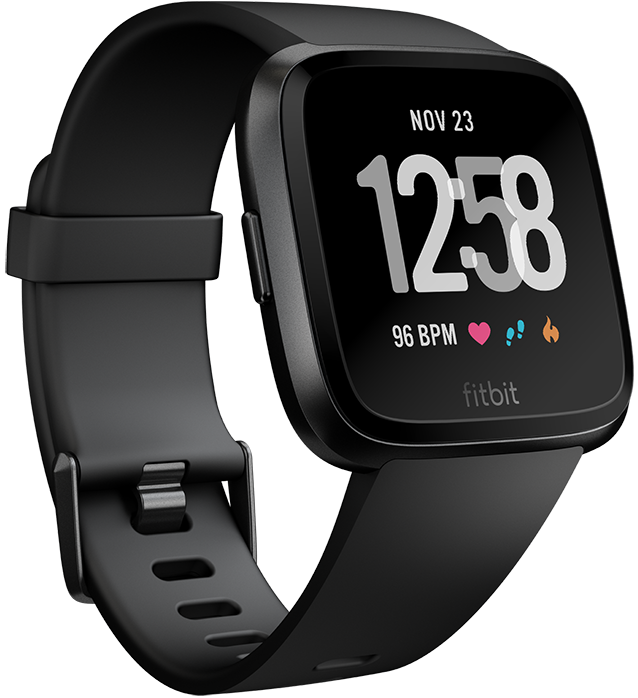

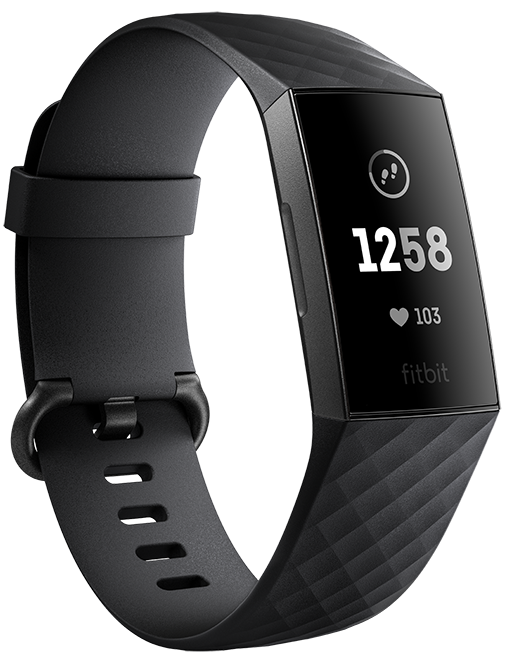


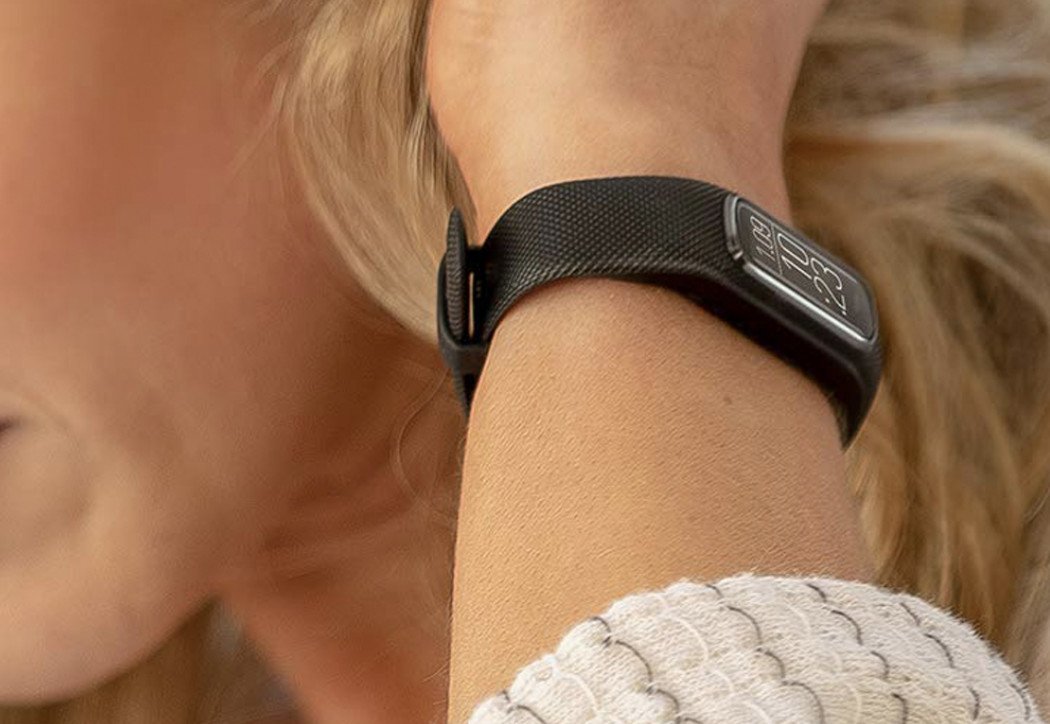

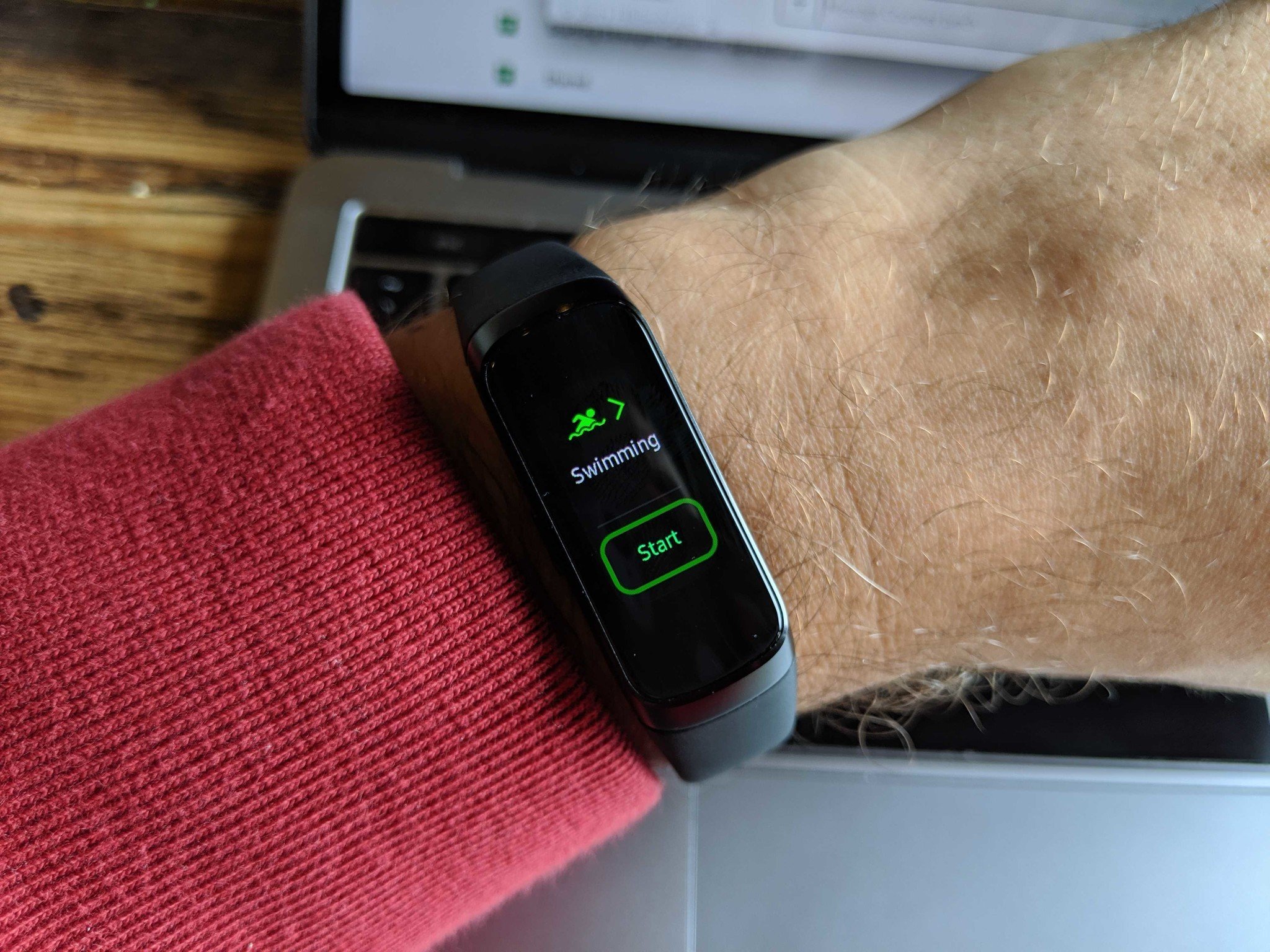


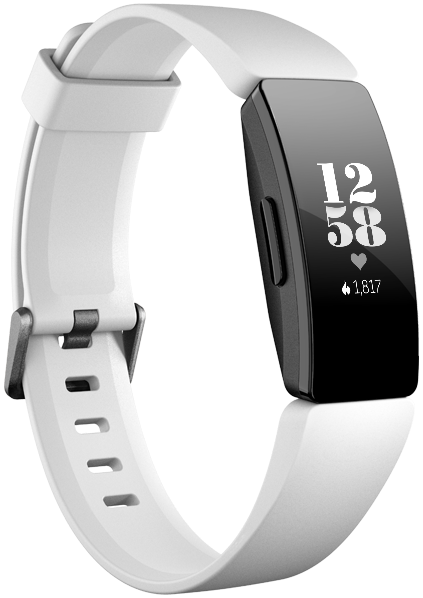







Post a Comment